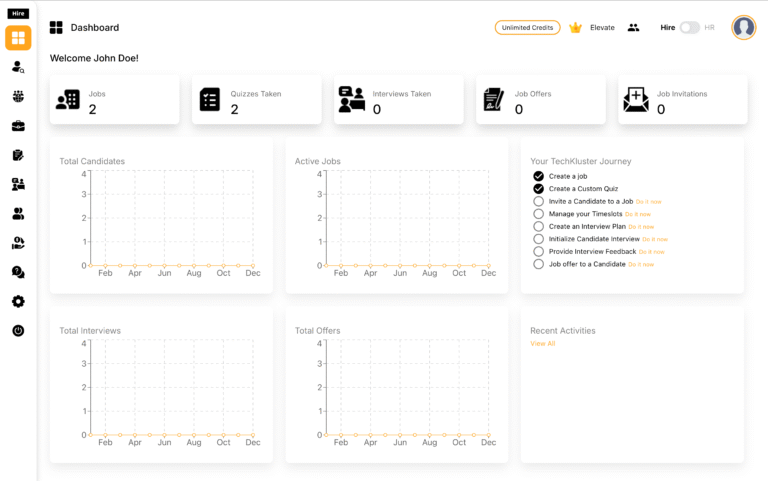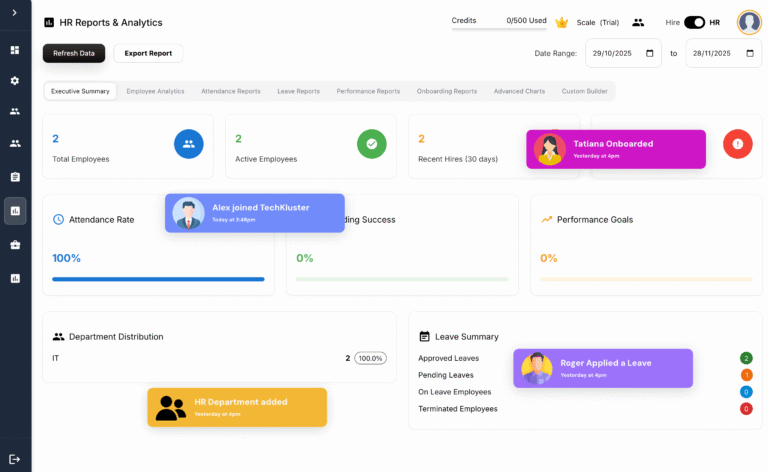Introduction The Microsoft Interface Definition Language (MIDL) is a powerful tool used for defining and describing interfaces between software components, especially in the context of remote procedure call (RPC) technologies like COM (Component Object Model) and DCOM (Distributed Component Object Model). While working with MIDL, you might encounter various error messages, one of which is …
Introduction
The Microsoft Interface Definition Language (MIDL) is a powerful tool used for defining and describing interfaces between software components, especially in the context of remote procedure call (RPC) technologies like COM (Component Object Model) and DCOM (Distributed Component Object Model). While working with MIDL, you might encounter various error messages, one of which is the “Unsatisfied Forward Declaration” error. In this article, we will explore the causes of this error and provide detailed steps to fix it.
Understanding the “Unsatisfied Forward Declaration” Error
The “Unsatisfied Forward Declaration” error occurs when the MIDL compiler (midl.exe) encounters a reference to a type or interface that has not been properly declared or defined within the IDL (Interface Definition Language) file. This error typically prevents the successful compilation of the IDL file into a type library or a proxy/stub DLL, which are essential components for interprocess communication in COM-based systems.
Common Causes of the Error
Several reasons can lead to the “Unsatisfied Forward Declaration” error in MIDL:
- Missing or Incorrect Forward Declarations: If you reference a type or interface in your IDL file before declaring it, MIDL will generate this error. Ensure that all types and interfaces are declared before they are used.
// Incorrect usage causing an error
interface IFoo;
// ...
interface IBar
{
HRESULT Method(IFoo* pFoo);
}To fix this, declare IFoo before using it:
interface IFoo;
// ...
interface IBar
{
HRESULT Method(IFoo* pFoo);
}- Circular Dependencies: Circular dependencies between interfaces or types can also trigger this error. For example, if
IInterfaceAreferencesIInterfaceB, andIInterfaceBreferencesIInterfaceA, you will encounter the error.
// Circular dependency causing an error
interface IInterfaceA
{
HRESULT Method(IInterfaceB* pB);
}
interface IInterfaceB
{
HRESULT Method(IInterfaceA* pA);
}To resolve this, consider breaking the circular dependency or using interface pointers instead of concrete types.
- Typographical Errors: Simple typos or syntax errors in your IDL file can also lead to unsatisfied forward declarations. Double-check your code for any spelling mistakes, missing semicolons, or incorrect keywords.
- Missing Include Files: If your IDL file relies on external header files or other IDL files, make sure they are properly included. Missing includes can result in undefined types.
Fixing the “Unsatisfied Forward Declaration” Error
To fix the “Unsatisfied Forward Declaration” error, follow these steps:
- Identify the Problem: Carefully review the error message generated by MIDL. It will usually provide details about the undefined type or interface and the line number where the issue occurred. This information is crucial for pinpointing the problem.
- Declare Types and Interfaces: Ensure that all types and interfaces are correctly declared before they are used in the IDL file. Place the forward declarations at the beginning of the file or in a separate include file that can be included at the top of your IDL file.
- Break Circular Dependencies: If you have circular dependencies, consider refactoring your interfaces or using interface pointers instead of concrete types to break the circular chain.
- Check for Typos: Double-check your IDL file for any typographical errors, missing semicolons, or incorrect keywords. Even a small mistake can lead to this error.
- Include External Files: If your IDL file relies on external header files or other IDL files, ensure that you include them correctly using the
importorincludedirectives.
Example Code
Here’s an example of a corrected IDL file to illustrate the above steps:
// Forward declaration of IFoo
interface IFoo;
// Corrected interface IBar
interface IBar
{
HRESULT Method(IFoo* pFoo);
}
// Definition of IFoo
interface IFoo
{
HRESULT AnotherMethod();
}In this example, we have properly declared IFoo before it is used in the IBar interface, resolving the “Unsatisfied Forward Declaration” error.
Best Practices to Avoid “Unsatisfied Forward Declaration” Errors
While the steps mentioned above can help you resolve “Unsatisfied Forward Declaration” errors, it’s equally important to adopt best practices to avoid encountering them in the first place. Here are some additional tips:
1. Organize Your IDL File
Maintaining a clean and organized structure in your IDL file can significantly reduce the chances of forward declaration errors. Group related interfaces and types together, and place forward declarations at the beginning of the file or in separate include files for better readability.
2. Use Meaningful Names
Give meaningful and descriptive names to your interfaces and types. This not only makes your code more understandable but also helps in avoiding naming conflicts that can lead to unsatisfied forward declarations.
3. Minimize Dependencies
Reducing dependencies between interfaces and types can simplify your codebase and minimize the chances of circular dependencies. Consider whether an interface really needs to reference another, and if not, try to eliminate the dependency.
4. Testing and Review
Regularly test and review your IDL files as you develop your COM-based components. Catching and fixing forward declaration errors early in the development process can save a lot of time and effort.
5. Documentation
Thoroughly document your IDL files. Use comments to explain the purpose of interfaces and types, their relationships, and any potential dependencies. Well-documented code is easier to understand and maintain.
6. Version Control
Utilize version control systems like Git to keep track of changes in your IDL files. This can help you identify when and where forward declaration errors were introduced, making it easier to pinpoint and resolve them.
Advanced Techniques
In complex projects, you may encounter scenarios where resolving forward declaration errors becomes challenging. In such cases, consider these advanced techniques:
1. Using Interface Pointers
Instead of relying on concrete types, use interface pointers wherever possible. Interface pointers are more flexible and can help break circular dependencies. This approach adheres to good COM design principles and is often used in complex COM architectures.
2. Separate IDL Files
Split your project’s IDL definitions into multiple files, each focused on a specific aspect or module of your application. This can make it easier to manage dependencies and forward declarations. Use import statements to include these separate IDL files as needed.
import "SomeOtherModule.idl";
interface IMyInterface : ISomeOtherInterface
{
// ...
}3. Code Generation Tools
Consider using code generation tools or frameworks that automate much of the IDL generation process. These tools can help reduce the risk of forward declaration errors and enforce best practices.
Conclusion
Fixing and preventing “Unsatisfied Forward Declaration” errors in MIDL is crucial for building robust and maintainable COM-based components. By following the steps outlined in this article, adopting best practices, and considering advanced techniques when necessary, you can ensure that your IDL files are free of these errors. Properly structured and well-documented IDL files will not only save you time and effort but also contribute to the overall quality of your software components.





